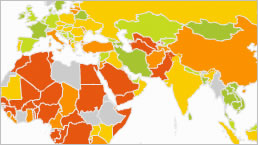Download File(s):
There are an estimated 215 million international migrants working in a globalised economy, the majority of whom are remitting money to their home country. The OECD, G20 and GPFI recognise the importance of such remittances in contributing to the financial resources of many countries.
Remittances are also a vital component of household income for families, reducing poverty and creating opportunities for investment in education and enterprise. Well designed, low-cost remittance products can help to maximise the benefit of money sent abroad whilst also providing a valuable stepping stone towards increased financial inclusion in both the home and host country.
A range of supply-side initiatives are underway to develop and roll-out such remittance products and to increase levels of financial inclusion. The benefit of such initiatives can be increased by developing complementary, demand-side approaches to improve the financial literacy of migrants and their families through education, information and guidance. These demand-side approaches are the topic of this publication, endorsed by G20 Leaders in November 2015 in Antalya.
The OECD, through its International Network on Financial Education (INFE)1, and the G20, through the Global Partnership on Financial Inclusion (GPFI), are addressing demand-side barriers to financial inclusion, including the specific needs of migrants. Migrants are identified as a potential target group for financial education in the OECD/INFE High-level Principles on National Strategies for Financial Education, approved by G20 leaders in 2012 (OECD, 2012a)2. The 2013 OECD publication ‘Promoting Financial Inclusion through Financial Education: OECD/INFE Evidence, Policies and Practice’ is also an important component of the OECD work, stressing the fact that financial literacy skills not only facilitate financial inclusion, but are also vital for effective money management and long-term financial planning and that such behaviours can significantly improve financial wellbeing.


